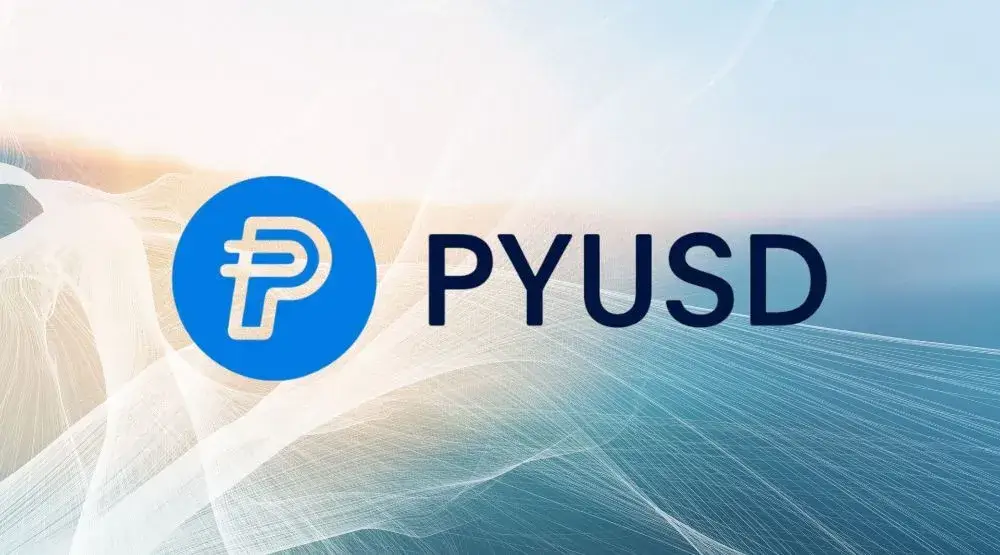News

What You Need To Know About Paypal’s Own Stablecoin - PYUSD
PYUSD Explained
PayPal has announced the launch of its own stablecoin, called PayPal USD (PYUSD). According to the company, PYUSD is designed to enable seamless digital payments within blockchain ecosystems by tying its value to the U.S. dollar.
PYUSD is a stablecoin pegged 1:1 to the dollar and backed by USD deposits, short-term U.S. treasuries, and equivalent reserves held by PayPal. This collateralization maintains the dollar peg and allows redemptions of the stablecoin for the underlying fiat currency if needed.
Eligible U.S. PayPal customers can buy, sell, and hold PYUSD within the PayPal app. The stablecoin can be used for online purchases at merchants accepting PayPal USD. It can also be transferred to cryptocurrency wallets like Coinbase Wallet and MetaMask.
PayPal customers can utilize PYUSD to purchase other supported cryptocurrencies on the platform such as Bitcoin, Ethereum, and Litecoin. Users can send PYUSD to other PayPal account holders with no fees.
However, fees apply for conversions between PYUSD and other cryptos as well as withdrawals and online spending. PayPal states these fees will be disclosed when making transactions.
By tying PYUSD's value to the dollar, PayPal aims to appeal to users who want to avoid the volatility of other cryptocurrencies. The company frames PYUSD as enabling smoother transactions between traditional finance and blockchain ecosystems.
The Strategy Behind Its New Stablecoin
With its new stablecoin PYUSD, PayPal aims to stake a claim in the booming crypto market. The company says PYUSD will enable swift transfers for remittances and compatibility with Web3 environments like Venmo.
This Web3 focus appears strategic as blockchain-based Web3 is seen as the internet's next iteration. Crypto will facilitate transactions and empower user control in Web3, shaping how people support creators and interact with platforms.
By allowing PYUSD use in virtual settings, PayPal is positioning itself as a major Web3 player. As an ERC-20 token, PYUSD can integrate with Ethereum-based apps and be developed on by the community.
The stablecoin launch continues PayPal's gradual crypto expansion. Partner Paxos issues and manages PYUSD, providing regulatory oversight like its BitLicense from New York.
Paxos will publish reserve reports and third-party attestations to validate holdings backing PYUSD. This regulated approach contrasts issues like those that sank Paxos' Binance USD stablecoin.
PayPal seems to view PYUSD as the next logical step in its crypto integration. With digital assets facilitating Web3 transactions, PayPal aims to remain relevant in the internet's evolution.
PYUSD Faces Stiff Competition in Crowded Stablecoin Market
As a fresh entrant to the stablecoin arena, PayPal USD (PYUSD) will contend with established rivals boasting market reach, brand authority, and regulatory distinctions.
While dominant stablecoins like Tether, USD Coin, and Binance USD hold market caps in the billions, PayPal can leverage its vast user base to rapidly expand PYUSD capitalization.
However, accessibility poses a challenge as PYUSD lacks listings on major exchanges like Coinbase, Binance, and Kraken available to other stablecoins.
Brand-wise, PayPal enjoys wide trust and recognition, but top stablecoins have cultivated dependability over years of track record.
Regulatory compliance gives PYUSD an edge as government oversight increases. Unlike Tether, PYUSD issuances are regulated by the New York DFS, providing investor protections and bankruptcy recourse others lack.
This regulatory advantage could prove crucial long-term as jurisdictions like the U.S. clamp down on stablecoins without proper oversight. The PYUSD model could become an expectation.
In an increasingly crowded market, PYUSD must court exchange listings for reach while proving its stability and utility compared to established alternatives. However, its regulatory standing and PayPal's reputation offer meaningful differentiation.
By merging PayPal's appeal with responsible USDF oversight, PYUSD aims to carve out a stablecoin market share, though competition from dominant incumbents and newcomers will remain fierce.
PYUSD Stablecoin Faces Adoption Hurdles Ahead
While PayPal's new PYUSD stablecoin brings major legitimacy as a regulated crypto offering, it must overcome key challenges to succeed.
For one, limiting PYUSD to US customers constrains growth versus global rivals. Also, its centralized structure and asset freeze feature may deter some crypto users from favoring decentralization and censorship resistance.
Additionally, as US Congress debates stablecoin regulations, PYUSD and its competitors could soon face stricter rules hampering expansion.
More broadly, skepticism remains over whether the long-term future favors decentralized or centralized stablecoins. PYUSD ties its legitimacy to USDF oversight - will this prove an advantage or limitation?
On the other hand, PYUSD provides easy crypto and stablecoin access to PayPal's vast customer base. This built-in audience offers a major advantage if PayPal can convince them to adopt PYUSD.
PayPal will also need to cater to developer and partner needs to make PYUSD useful for payments and transfers beyond just holding value. The real-world utility is key.
For non-US users, PYUSD lacks appeal versus established global alternatives. But for Americans seeking stable crypto exposure, PYUSD may soon become the trusted default.
As the stablecoin market evolves, PYUSD must keep pace with regulations while proving its design and use cases to both crypto native and mainstream audiences.

Get K8 Airdrop update!
Join our subscribers list to get latest news and updates about our promos delivered directly to your inbox.



